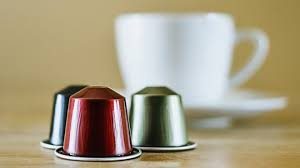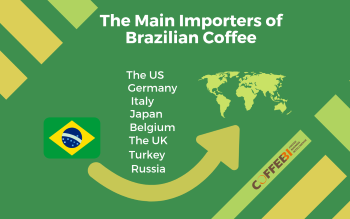Coffee Capsules Recycle: a Priority for Goverments and Companies
 In an effort to fight waste and make better example for environmental friendly steps, the city of Hamburg has announced an all-out ban in the state-run buildings on pod coffee (independent.co.uk).
In an effort to fight waste and make better example for environmental friendly steps, the city of Hamburg has announced an all-out ban in the state-run buildings on pod coffee (independent.co.uk).
According to Jan Dube, spokesman of the Hamburg Department of the Environment and Energy, the capsules cannot be easily recycled because of the complexity of the packaging which consists of a fusion of different materials along with the residue of coffee grinds sitting in the bottom of the pods.
Hamburg’s senator for the environment Jens Kerstan hope that their move may send bigger signal out in the world, as cities have big purchasing power that can be used for purchasing environmentally harmful products at least less frequently.
The change in perspective isn’t just limited to Germany, one in every ten Britons also consider coffee pods bad for the environment, although 22% of the asked people owned a machine at the same time, according to Harris Interactive for The Grocer, a supermarket trade magazine (bbc.com).
According to Ross Colbert, an analyst at Rabobank, coffee pods make up about one-third of the €18bn (£13.9bn) Western European coffee market. While there is a general growth in the coffee market at a rate of 1.6% a year, coffee pod sale show an exceeding growth of 9% each year since 2011. According to analyst, more than £112m-worth of coffee pods was sold in the UK in 2015 up by a third from 2014. Sales are expected to show even more increase by the year 2020, expected to overtake the tea-bag sales (bbc.com).
It’s been 40 years since the first coffee pod was developed by Eric Favre, the inventor of Nespresso and 30 years since the first machine was released. Up till now, some 254 separate patents refer to Favre’s original design for “a capsule containing a substance for making up a drink using an apparatus”, with Lavazza being a recent addition submitting its own patent for capsule technology.
Coffee makers say they are doing what they can to help get these capsules recycled.
Nespresso is playing its role by regulating its own recycling program where the pods are collected and re-cycled. According to company’s spokesperson they have a capacity to recycle over 80% of used capsules with 14,000 dedicated capsule collection points in 31 countries, and it is aiming to increase this to 100% by 2020 (bbc.com).
They are also looking for new and improved ways to communicate with the customers, making sure the messages about where and how to recycle goes out clearly.
A Singaporean-based designer, Eason Chow, finds the amount of packaging waste shocking and proposes replacing the plastic cup with dissolvable sugar much like gumball.
Other alternative offers include biopolymer capsules that naturally convert into organic fertilizers, developed by Caffe Vergnano. Then there is Ethical Coffee Company that makes 100% bio-degradable capsules made from plant-based fibers and is also compatible with Nespresso machine.
Companies making efforts that are appreciable but according to Colbert, a Rabobank analyst, “As long as the market is growing the way it is, the pressure to offer more sustainable alternatives may not be as great as it could be.”



